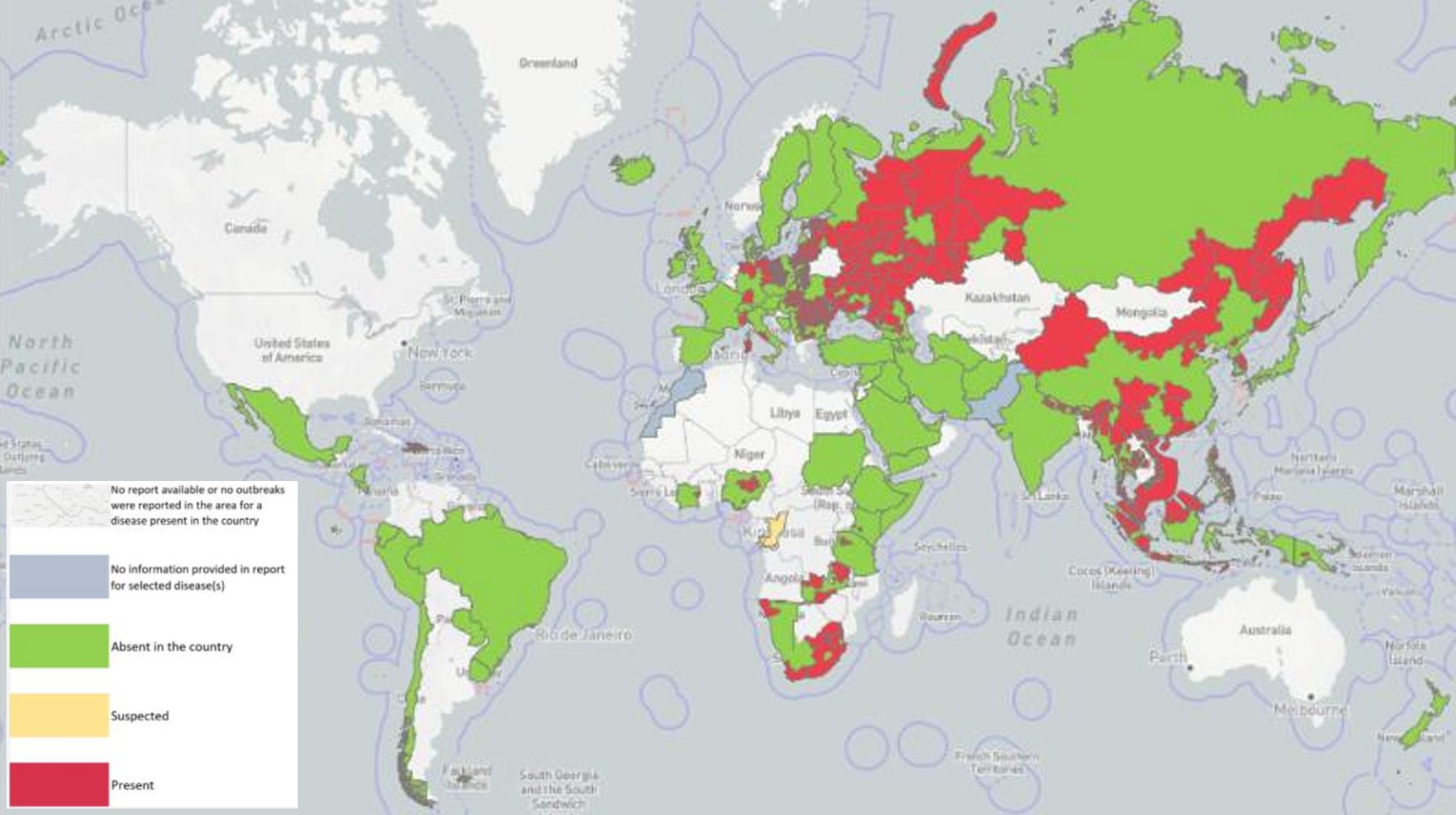What is ASF?
African swine fever (ASF) is a viral disease that only impacts pigs, and currently has no cure. As it spreads around the globe, it poses a significant risk to the health of the Canadian swine heard, the pork industry, and the Canadian economy.
This 3-minute video provides an overview of ASF and how to stay ahead of it.
More about the ASF
Infectious Period
- 11 days in feces
- Months in bone marrow
- 15 weeks in chilled meat
- More than 15 weeks in frozen meat
- 3-6 months in cured hams that have not reached high-temperature cooking
Transmission
The virus is transmitted from oral and nasal exposure and either through direct or indirect contact. Soft ticks and other stable flies can also move the disease.
- Directly by contact of infected pigs with healthy pigs.
- Indirectly by contact with the virus from excretions, secretions, and infected tissues
including the ingestion of contaminated pork or meat products, contaminated swill or
kitchen waste, and contaminated vectors such as feed, vehicles and footwear. - The incubation period of ASF is 5-15 days. There are both acute and chronic forms of ASF. Clinically the disease is characterized by hemorrhagic fever and multiple organ involvement.
Signs of the Virus
Symptoms include:
- High fever
- Weakness and difficulty standing
- Vomiting
- Diarrhea
- Red or blue blotches on the skin (particularly around ears and snout)
- Coughing or labored breathing.
- In Sow Barns, miscarriage, abortions, stillbirths, and weak litters can occur.
- High proportions of the animals with the disease will die within 10 days.
- If a pig survives the infection, they can shed the virus for up to 6 months.
Diagnosis
The recognition and diagnosis of ASF can be difficult. Clinically, the disease looks identical to Classical swine fever and looks very similar to Erysipelas, Salmonellosis, Septicemic pasteurellosis and other septicemic diseases.
If you suspect your pigs are infected with African swine fever, contact your licensed veterinarian.
Collaborating to keep ASF out of Canada
The African Swine Fever Executive Management Board (ASF EMB) brings together federal, provincial, and territorial (FPT) governments and industry representatives to provide guidance, prioritize activities, and address the risk of ASF introduction and establishment in Canada.
Stakeholders from the Canadian pork industry are coming together to prevent ASF from affecting the Canadian pig herd. The Canadian Pork Council is privileged to work with multiple partners who are actively taking actions to prevent the spread of ASF in Canada.
The CPC is a member of the ASF Executive Management Board (ASF EMB) alongside CFIA, AAFC, Canada Border Services Agency, Manitoba, Ontario, and Quebec provincial governments, and the Canadian Meat Council. The ASF EMB has been working together on the Pan-Canadian ASF Action Plan.
Click here to learn more on ASF EMB. To access the Action Plan, you can do so by clicking here.
ASF in other Countries
Globally since January 2021, and as of January 2023, ASF has been reported as present in 40 different countries. This has affected more than 820,000 pigs and 22,000 wild boars, with over 970,000 animal losses.
Please see Image 1, which displays the presence of ASF around the world.
Animal Health Canada
The Canadian Pork Council is a member of Animal Health Canada, where we collaborate with industry, federal, provincial and territorial partners to develop and implement a cohesive, functional, and responsive farmed animal health and welfare system in Canada.
Click here to learn more about Animal Health Canada.
